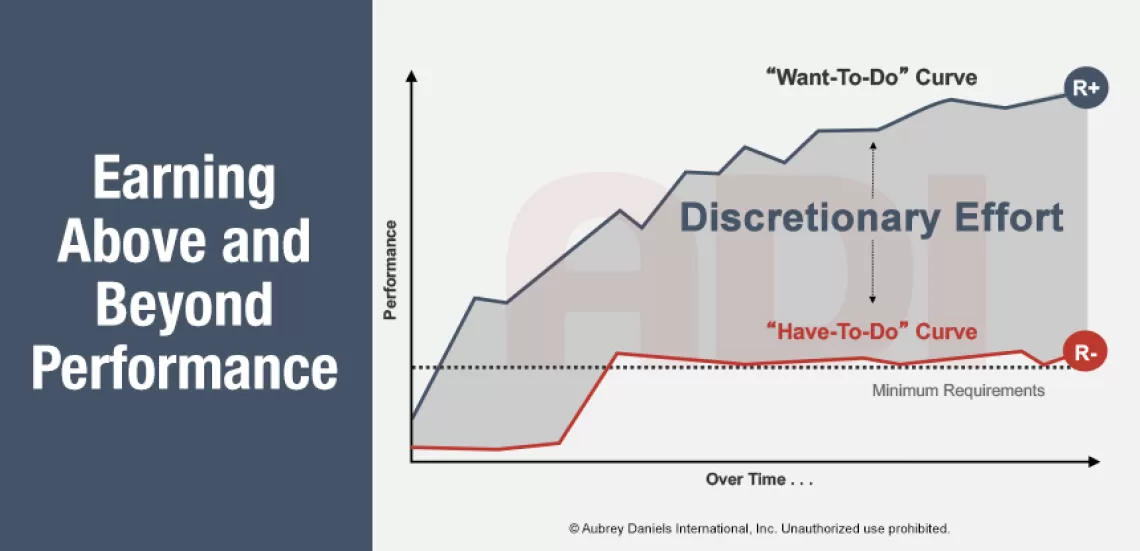
Discretionary Effort
"Discretionary effort is the level of effort people could give if they wanted to, but above and beyond the minimum required." —& Aubrey C. Daniels, Ph.D.
Many organizations manage performance in such a way that motivates employees to do only enough to get by and avoid getting in trouble (negative reinforcement). Typically, these organizations manage by exception, providing consequences for worker’s performance only when it falls below the standard or minimum required.
This approach gets immediate results, but just enough behavior to stop the threats and the potential for other negative consequences in the near future. It suppresses discretionary effort because there’s nothing in it for people to do more than the minimum required.
How to Maximize Discretionary Effort
At Aubrey Daniels International (ADI), we understand that the only way organizations can earn discretionary effort is through the effective use of positive reinforcement.
"Positive reinforcement is any consequence that increases the probability of the behavior that it follows." — Judy Agnew, Ph.D.
The more likely that people experience positive and immediate consequences for their behavior, the more likely they will be to enjoy what they are doing and gladly go above and beyond the minimum required. People do it all the time in their personal lives. They also do it in organizations skilled in building positive reinforcement into the work itself and supporting that work process and self-reinforcement with positive reinforcement from peers, managers, and performance systems.
ADI Consultants Develop Positive Work Cultures
By eliminating negative consequences (e.g., time, effort) for critical business behaviors and then building in frequent positive consequences for those same behaviors, organizations can tap into the discretionary efforts of their workforce. Not only is this good for business, it’s good for the organizational culture and the workforce.



